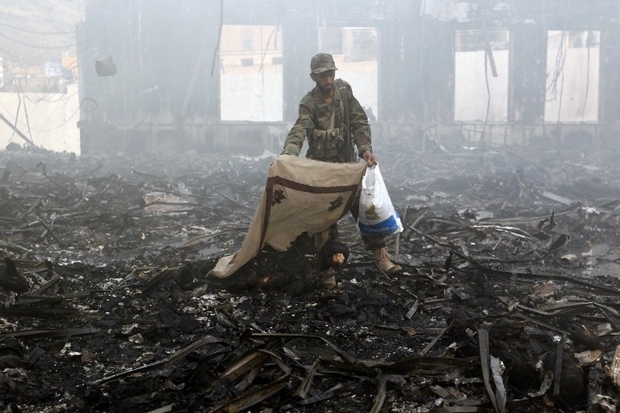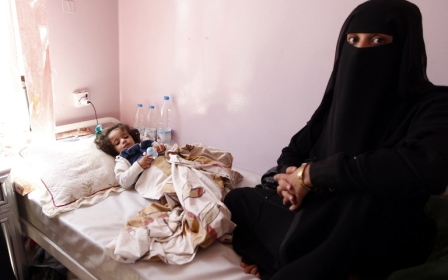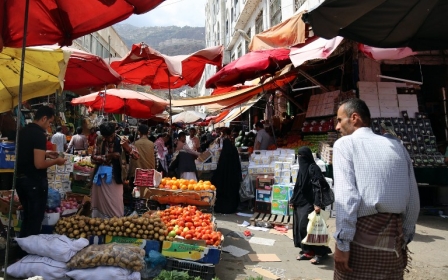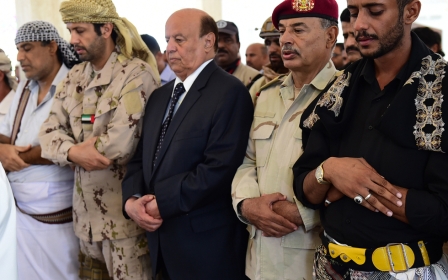Saudi meets legal criteria for arms sales: UK government

The UK government was accused of being in denial after it said Saudi Arabia has satisfied the legal criteria for being an arms importer, including not posing a high risk of committing breaches to international humanitarian law in Yemen.
Rights groups accuse Saudi Arabia of committing abuses, including attacks on medical centres in the war that has claimed scores of civilians. Last month, a Saudi-led air strike hit a funeral in Sanaa, killing more than 140 people.
In response to a report by three separate House of Commons committees, the UK government said it is aware of reports of alleged violations of international humanitarian law (IHL) by the warring sides in Yemen and it takes them seriously.
"We regularly raise the importance of compliance with IHL with the Saudi Arabian government and other members of the military Coalition," the UK government response reads.
According to the government, Saudi Arabia has said that is is investigating reports of abuse “and that lessons identified will be acted upon”.
There are 100 UK military personnel based in Saudi Arabia, the government said.
However, the government acknowledged that the UK defence personnel "are unable to form a complete understanding of the Coalition’s regard for IHL in its operations in Yemen as they do not have access to all the information required to do so".
It said although British soldiers are not involved in the coalition’s decision-making, their insight into Saudi procedures "contribute to our overall view on the approach and attitude of Saudi Arabia to IHL, as part of wider information available to us".
But Philippe Bolopion, deputy director for global advocacy at Human Rights Watch, said that the government's conclusion that there had been no serious breaches of the laws of war in Yemen "borders on the absurd, and flies in the face of overwhelming evidence gathered by human rights groups and UN experts".
"It’s assertion that coalition members are best-placed to investigate their own crimes shows blind acceptance of the Saudi-led coalition’s wholesale unwillingness to investigate the widespread death and misery it has inflicted on civilians in Yemen. At this stage, the only sensible way for the UK government to avoid complicity in war crimes in Yemen is to suspend arms sales to Saudi Arabia, as recommended by the two select committees.”
Andrew Smith, of Campaign Against Arms Trade, said the UK government is in denial about the "devastating impact" of the Saudi bombing campaign and its own role in it.
"This is a very weak and shameful response and makes clear that arms company profits are being prioritised over the human rights and lives of Yemeni people," he told the Guardian.
In the original report, which was published in September, the business and international development committees launched an inquiry into UK-manufactured arms used in Yemen.
"The UK government has not responded to allegations of IHL breaches by the Saudi-led coalition in any meaningful way and we are concerned that our support for the coalition, principally through arms sales, is having the effect of conferring legitimacy on its actions," the committees said. It called on the government to monitor the situation closely and make sure that civilians are protected.
The inquiry cited HRW and Amnesty International reports on Saudi cluster bombs fired on populated areas in Yemen. The committees urged the Ministry of Defence to conduct its own investigation into the Saudi-led coalition’s use of UK-supplied cluster bombs.
The government responded by saying that it takes such reports seriously, noting that it stopped supplying the kingdom with cluster bombs in 1989.
War erupted last year in Yemen after Houthi rebels took the capital, Sanaa, and then began to advance on the southern city of Aden in pursuit of President Abd Rabbuh Hadi. A Saudi-led coalition then began a bombing campaign to stop the Houthis, who are allied with former President Ali Abdullah Saleh and accused of being backed by Iran.
New MEE newsletter: Jerusalem Dispatch
Sign up to get the latest insights and analysis on Israel-Palestine, alongside Turkey Unpacked and other MEE newsletters
Middle East Eye delivers independent and unrivalled coverage and analysis of the Middle East, North Africa and beyond. To learn more about republishing this content and the associated fees, please fill out this form. More about MEE can be found here.




